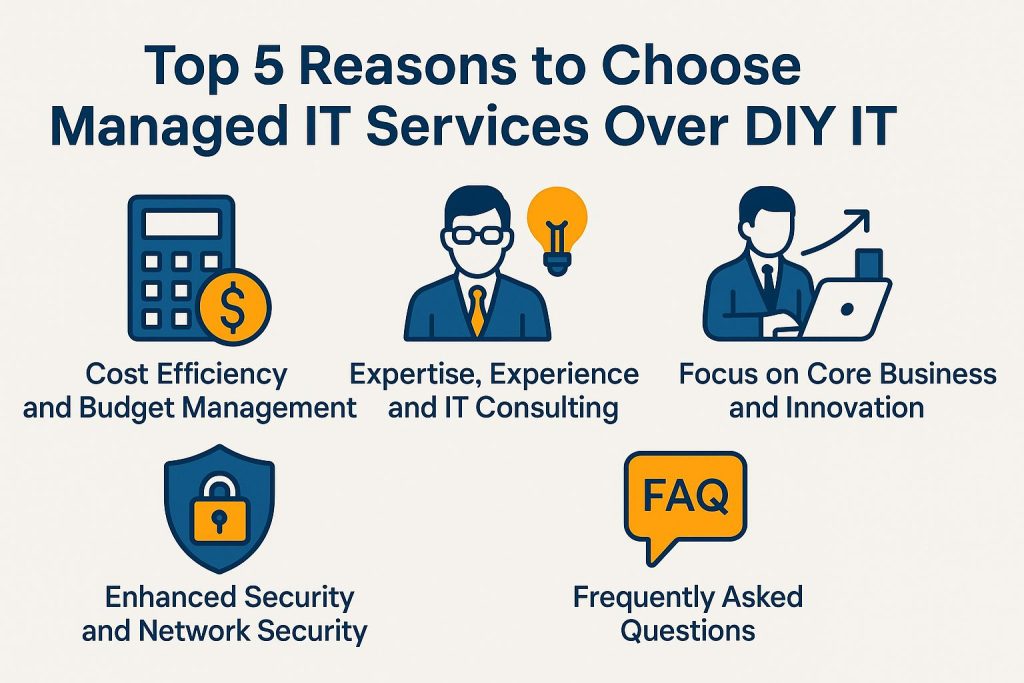How IT Services Boost Operational Efficiency in Finance
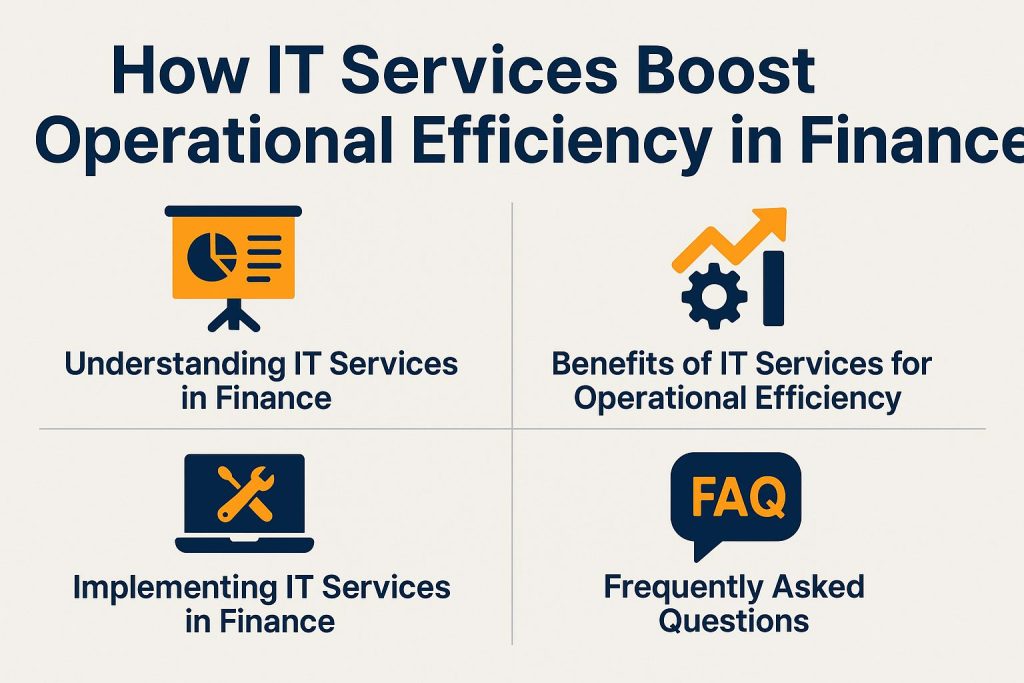
Today, integrating IT services is essential. They improve operational efficiency in finance. This article explains how IT services help finance. This article highlights benefits like streamlining processes and boosting productivity. Additionally, key points and best practices for implementing these services are covered. It focuses on change initiatives and IT strategy. By understanding how technology can drive efficiency in financial operations, stakeholders will be better equipped to navigate the complexities of this evolving industry.
Understanding IT Services in Finance
Financial institutions must understand IT services. This improves operational efficiency and helps them stay competitive in the digital world.
IT services include a variety of software solutions and technologies aimed at streamlining processes, enhancing data management, and ensuring compliance with regulatory standards.
The integration of these IT services supports digital transformation initiatives, enabling organizations to utilize cloud computing, data analytics, and automation to optimize their workflows.
Additionally, a robust IT infrastructure and comprehensive cybersecurity measures are vital for safeguarding sensitive financial data and improving the user experience while achieving customer satisfaction goals.
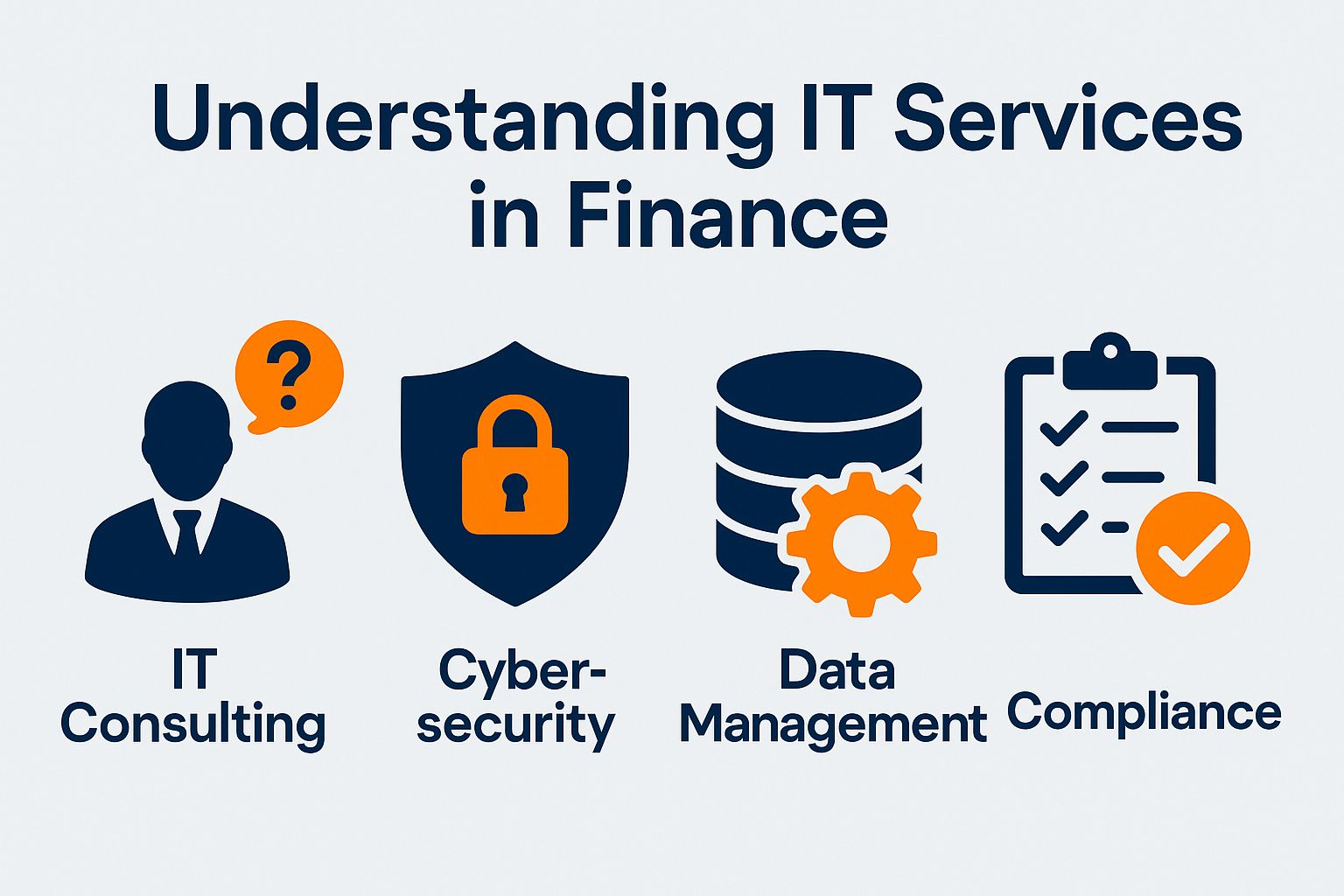
Overview of IT Services and their Role in Finance
IT services play a crucial role in the finance sector by providing essential tools and technologies that enhance operational processes, improve data management, and support digital transformation. These services include financial software that automates routine tasks. This lets institutions focus on strategy and customer engagement.
The integration of digital tools supports real-time reporting and better decision-making. This is key in the competitive finance sector. As businesses adopt these IT services, they can achieve increased efficiency, cost-effectiveness, and compliance with industry regulations.
For example, platforms such as:
- ERP systems streamline accounting and financial reporting,
- Customer relationship management (CRM) solutions enhance the management of client interactions.
Advanced analytics tools provide critical insights that enable organizations to predict market trends and understand customer needs, ultimately driving business growth. Meanwhile, compliance management software ensures strict adherence to regulations, reducing the risk of fines and enhancing trust with stakeholders. For more information, see Blythewood IT Services Business Technology Solutions.
By leveraging these technologies, financial firms can optimize their operations and enhance their agility, enabling them to respond swiftly to changing market conditions and client demands.
Benefits of IT Services for Operational Efficiency
The benefits of IT services for operational efficiency in financial institutions are substantial, as they enable process automation, cost reduction, and performance enhancement across multiple departments.
By adopting advanced financial software and digital tools, organizations can optimize workflows, improve resource allocation, streamline transaction processing, and enhance financial modeling. This approach not only results in significant cost-effectiveness but also aids in strategic planning through enhanced decision-making capabilities driven by data-driven insights, financial forecasting, and real-time reporting.
Moreover, the implementation of collaborative tools and technology integration promotes an agile work environment, enabling virtual teams to maximize their performance. For those looking to further reduce operational costs, exploring the strategies outlined in our analysis of Managed IT Services for Local SMEs can be highly beneficial.
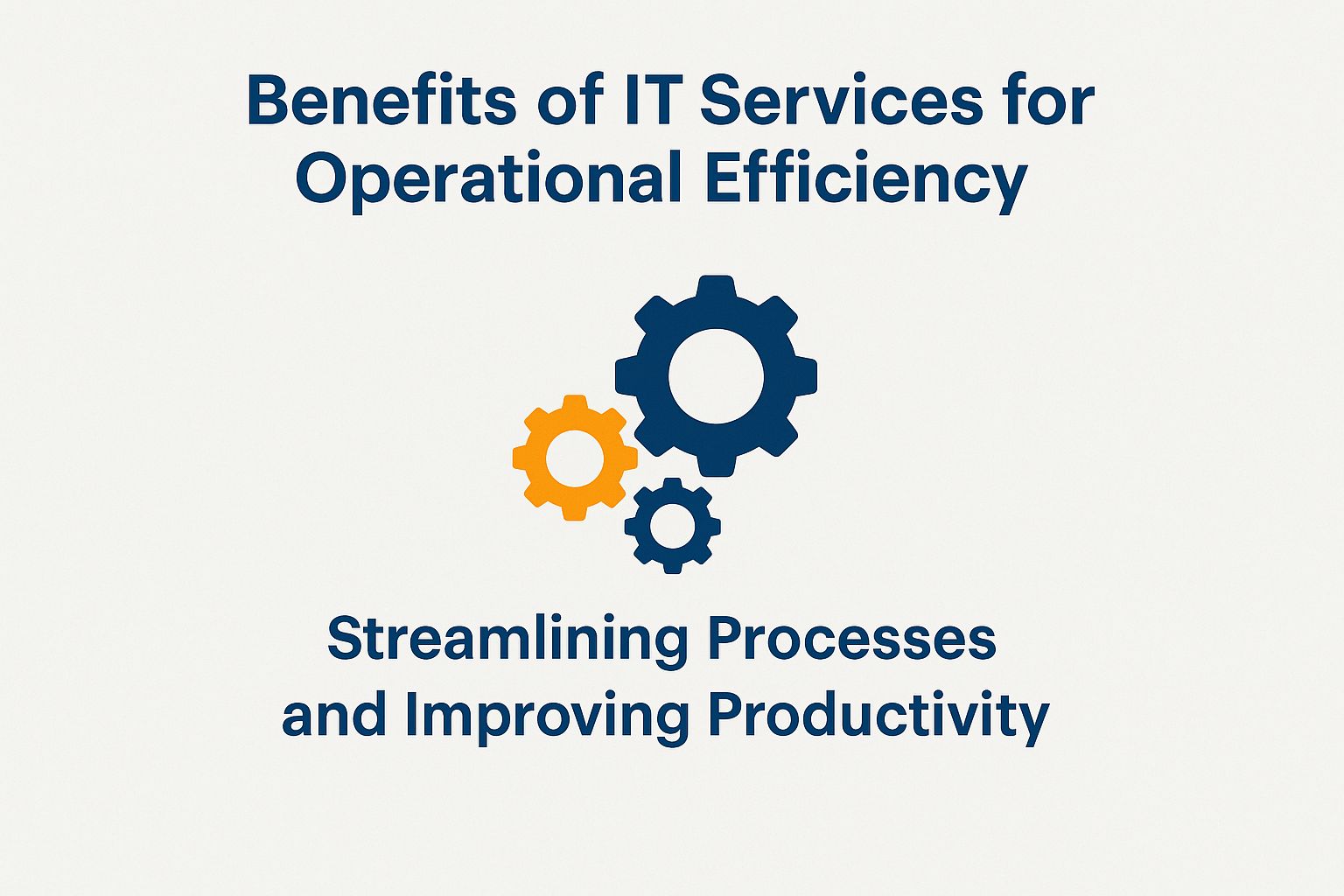
Streamlining Processes and Improving Productivity
Streamlining processes through IT services significantly enhances productivity in financial operations by reducing manual tasks and minimizing errors.
By integrating automation tools like robotic process automation (RPA) can reduce time on tasks like data entry. This lets employees focus on valuable activities like strategy and client interactions.
For example, automated invoicing systems reduce processing time and improve billing accuracy. This leads to faster cash flow and better operational metrics.
Furthermore, adopting workflow optimization strategies helps teams collaborate better. Clear approval hierarchies and management dashboards foster innovation and streamline decision-making. This not only streamlines decision-making but also promotes a culture of accountability.
These enhancements create a ripple effect, resulting in improved financial outcomes and a more agile organizational framework.
Implementing IT Services in Finance
To implement IT services in finance, organizations need careful planning. Key factors include change management, stakeholder engagement, and user training to facilitate smooth transitions.
Best practices for implementing IT services are:
- Conducting thorough needs assessments
- Selecting suitable vendors
- Providing effective IT support to address potential challenges
Also, ensure system integration and align IT infrastructure with business goals. This maximizes technology benefits, boosts scalability, and maintains compliance with industry standards and regulations. For an extensive analysis on scalability, our comprehensive study on how strategic IT consulting can help businesses scale examines key strategies and outcomes.
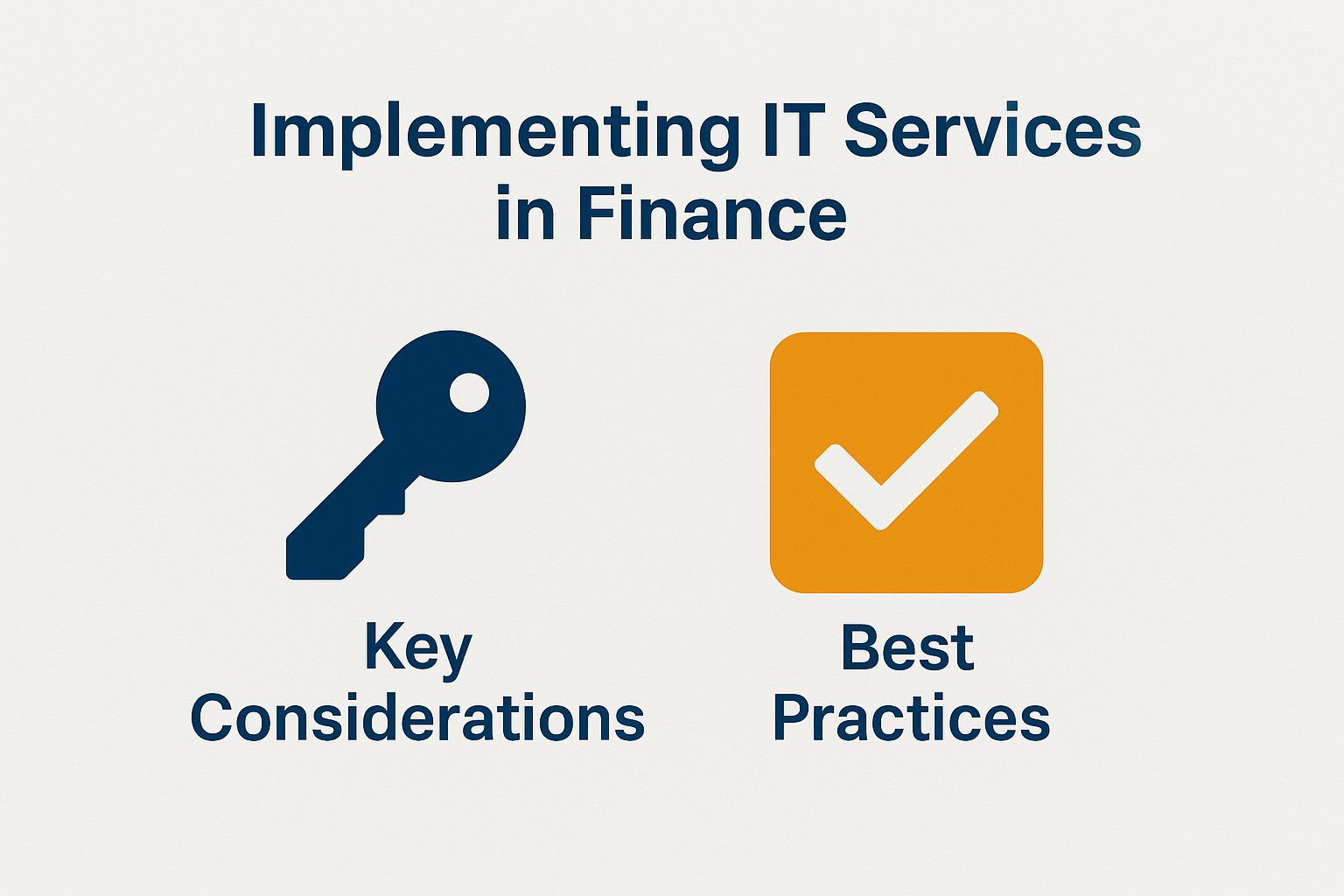
Key Considerations and Best Practices
Key considerations for implementing IT services in finance include strong IT governance and effective risk management. Financial institutions should align IT objectives with business goals while managing the potential risks associated with technology investments.
Fostering a culture of innovation is vital. User training, IT architecture upgrades, and stakeholder engagement help maximize IT service benefits. Emphasizing compliance with regulatory standards not only mitigates risks but also enhances credibility with customers and stakeholders.
To navigate IT service implementation, organizations should establish a dedicated governance framework. This framework defines roles and responsibilities. This framework aids in making informed decisions, ensuring accountability, fostering a collaborative environment, and enhancing vendor management.
Actively identifying and assessing risks through regular audits and feedback loops will strengthen risk management practices, enabling institutions to respond swiftly to potential issues.
Engagement with industry best practices and the utilization of frameworks such as ITIL or COBIT can significantly streamline processes, promoting efficiency, enhancing service quality, and ensuring effective IT governance. A proactive approach to governance and risk management lays the groundwork for a successful transition. It also supports long-term sustainable growth (our guide on managed IT services for local SMEs explores additional ways to optimize costs).
Frequently Asked Questions
What are IT services? How do they boost operational efficiency in finance?
IT services refer to the use of technology and software to support, improve, and automate various business processes and operations. In finance, these services can enhance efficiency by streamlining tasks, reducing manual work, and providing real-time data and analytics.
What specific IT services can be utilized to improve operational efficiency in finance?
Some common examples of IT services that can boost efficiency in finance include cloud computing, data analytics, automation tools, and financial management software. These services can support various tasks such as budgeting, forecasting, and reporting.
How do IT services help to reduce errors and improve accuracy in financial operations?
By automating tasks and delivering real-time data, IT services significantly minimize the risk of human error in financial processes. Furthermore, these services offer advanced data analysis and reporting, which not only ensures accuracy but also provides valuable insights into financial performance.
Can IT services help to cut costs and save time in financial operations?
Yes. IT services can save time by streamlining manual processes. They improve accuracy and reduce the need for extra staff and resources. This leads to cost savings for the organization.
How Can IT Services Be Used in Financial Operations? What Challenges Might Arise?
IT services leverage technology and software to handle financial tasks. However, challenges often arise when integrating new systems with existing ones. Therefore, proper training and ongoing support for employees are essential to ensure a smooth transition.
How Do IT Services Improve Compliance and Security in Financial Operations?
IT services use security measures and compliance tools. They help safeguard financial data and ensure adherence to industry regulations. This reduces the risk of fraud and maintains client trust.

